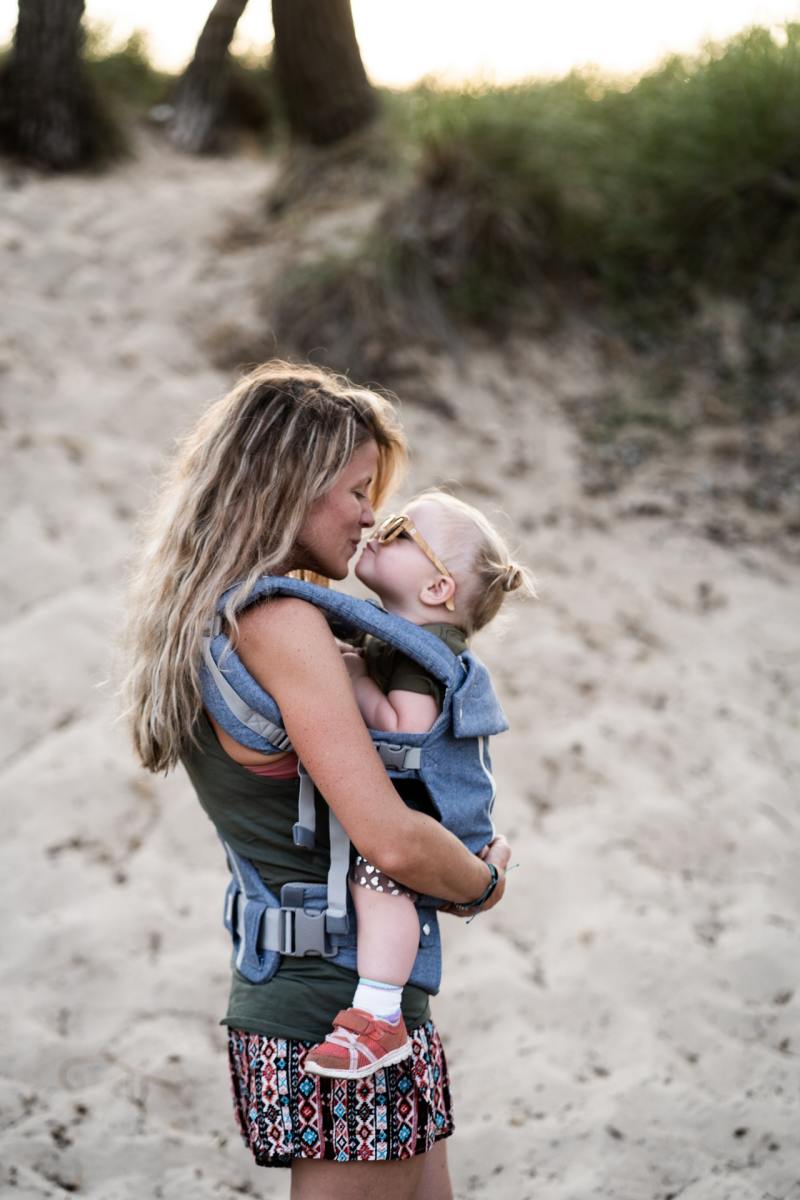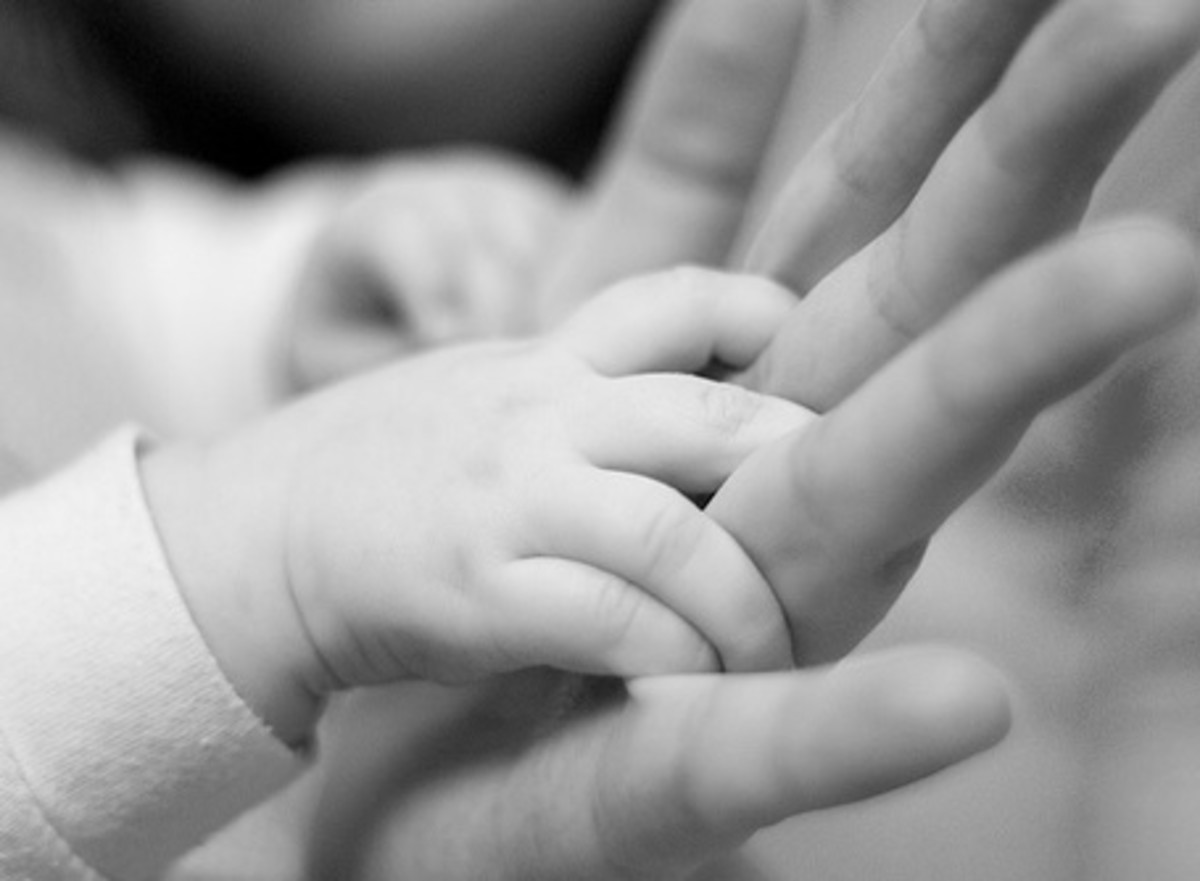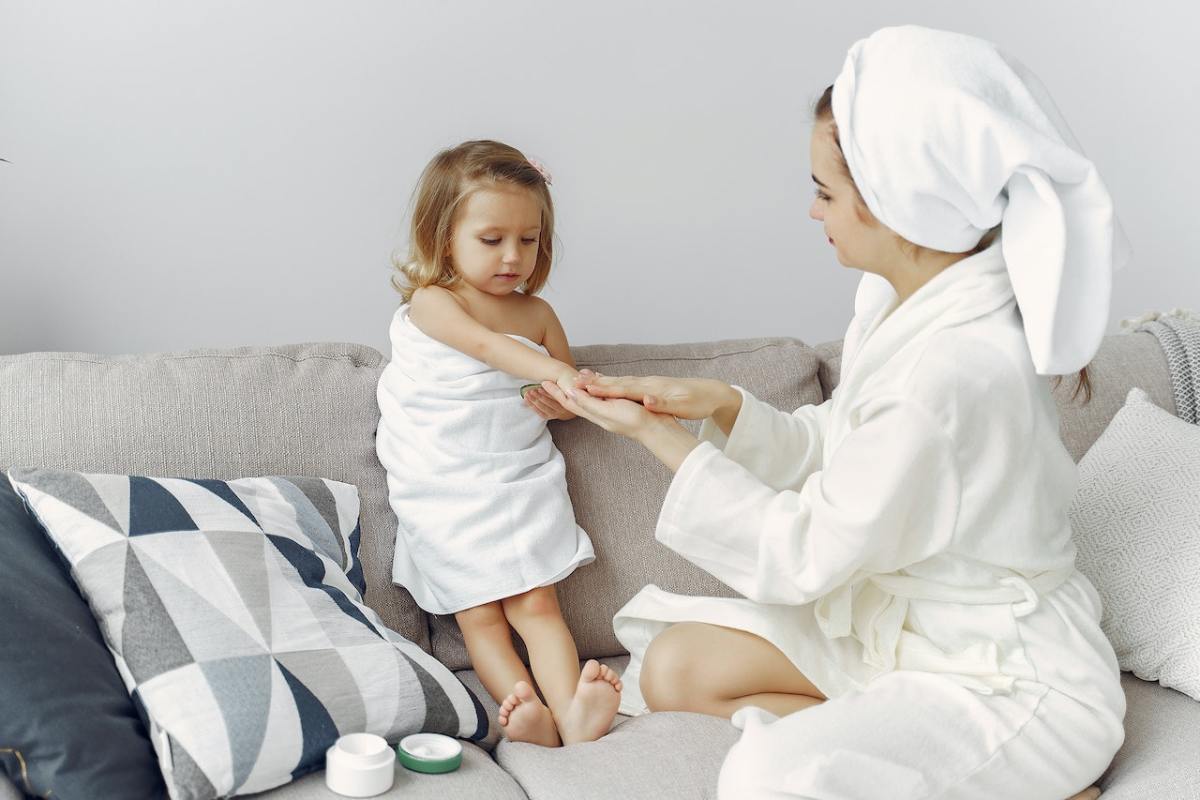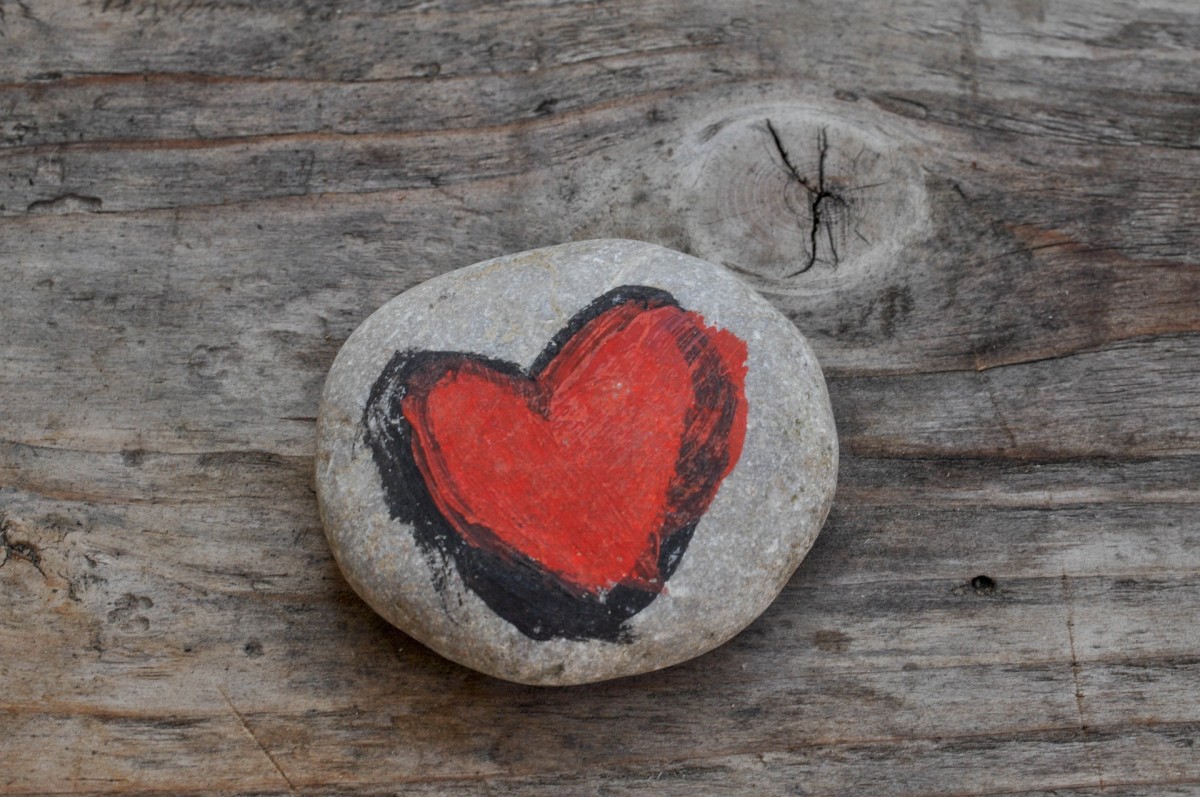How to Raise Good Kids Anywhere
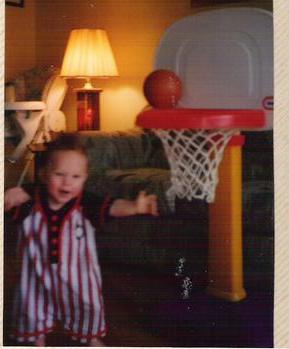
How to Prepare Your Child to Deal With Negative Outside Influences
First, examine who you are and what positive traits you have that you would love to see your child emulate. Next, start eliminating the negative traits that you have that you would hate to see your child emulate. We all have them. Nobody's perfect but when we have kids we have to pay more attention to what they learn from our actions. Children really do learn what they live and learn through example.
The time has come to start cleaning house -- out with the bad -- in with the good. Don't stop with just your traits. Use this philosophy with your family, friends, and potential care givers. I'm not saying to cut off all ties with these people. I'm saying to expect respect, and let them know it. Think ahead to when your child is fifteen and how their behaviors will have influenced his or her behavior. Then, decide to do what's best for your child, whether that be limiting time spent with disrespectful people, eliminating time with them altogether, or accepting who they are and researching ways to accentuate the good in them.
If you are a single parent who plays the part of Mom and Dad, you might want to cautiously seek out a member of the opposite sex who would be a positive influence for your child and who would enjoy mentoring him or her in your presence for years to come. If you know couples who are considerate to each other and demonstrate what a loving, caring couple looks like, spending family time with them may help your child know what to expect out of a relationship.
You cradle your infant and smother him or her with love and affection. You praise your toddler when he or she does something good, and enforce discipline when needed. You make sure that your sitters do the same. So far, your child is happy and well-rounded. In three months, your bundle of joy will start school for the first time. Outsiders will play a major role in forming the person he or she will become. Now is the time for you to set some ground rules -- for yourself.
The most important thing that you can do to ensure that your child isn't influenced to do the wrong thing is to be there influencing him or her to do the right thing. I'm not saying to quit your day job and go back to pre-school or kindergarten; but I am saying to quit your night job and find a day job, if that's the case, so you can maximize the amount of time you spend with your child.
Give your child security through a regular routine.
Start a routine, such as: Wake up/get dressed/brush teeth 8:00-8:20 Travel to sitters/school 8:20 -8:40 Pick up child 4:00, Dinner 5:00, After Dinner-/Wash Up-Brush Teeth, Mommy/Daddy/Child Play Time - 5:45 - 6:15, Child alone play time 6:15 - 6:35, Help Child Toy Clean Up Time, 6:35 - 6:45, Child Bath Time 6:45 - 7:00, Put on Pajamas - cuddle in living room 7:00 - 7:15, Story time 7:15 - 7:30, & Kisses, Hugs, Lights out 7:30 - 7:35. Mommy/Daddy Time to clean up after the day, or relax, or whatever 7:35 - 10:35 and stick to it as often as possible.
There's truth in the saying, "Hurt people hurt people."
If you're holding pain or anger in your heart, talk it out with a therapist or trusted friend. Find a way to work through it for the sake of your children if not for yourself. Whatever happened in the past, it happened. There's no going back and erasing it. There's no going back and changing it to get a different outcome. Accept that it hurt long enough and make a choice not to allow it to hurt you any longer. Don't pass your pain onto your children. Break the cycle.
Teach your children to defend themselves against harm.
5 Self-defense Tactics to Help Empower Children Against Harm
No parent wants to think that any harm could come to their child. The mere mention of it makes most of us want to pop in some earplugs and climb back into our blissful little bubbles where nothing bad happens. However, our children are in harm's way more often than we'd like to believe.
They may be hurt by a friend who moves on without them or fails to include them in an event. A thoughtless comment by somebody they admire might unwittingly damage their self perception. They could become the target of a bully or someone else looking to take advantage of them. The list goes on. Unfortunately, we can't shield them from every painful experience they will encounter in life. And we certainly don't want to place graphic images of things that could occur in their heads. However, we can teach them some general reactions that might help them protect themselves from many hurtful happenings.
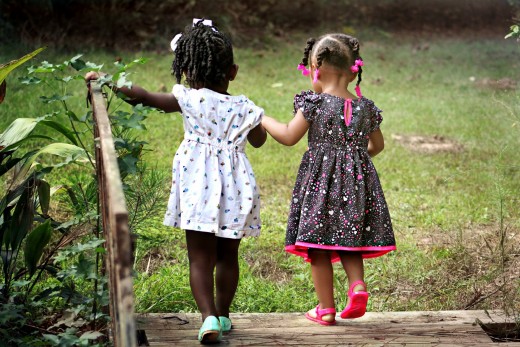
Teach Children Not to Keep Secrets
Not long after children learn to talk in phrases somebody they go to for help might criticize them with: "Don't be a tattletale." For example, if one sibling hits another and the one who was hit tells an adult, the adult might look at them and think they are fine. People often pay little attention to the complaint the child made and the wrongdoer is rarely punished. Sometimes the tattler is made to believe that telling was wrong and they get punished for it. They begin to learn how to keep a secret.
While most of the secrets kids keep will never have any significant impact on their lives, some might. As these children grow older they might be encouraged not to tell on others or they will be ridiculed by friends or classmates and labeled a snitch or a rat. However, if we want our kids to come to us when they have a problem, we have to quit shutting them up.
We have to let them know that we appreciate them confiding in us. And then, our actions have to show them that we heard what they said. This also applies for problems outside of the home such as at school. When a child confides in an adult that they are having a problem with someone at school, the child will feel they are deeply cared about if the adult gives them their undivided attention, asks questions, and sets up a meeting if necessary.
In addition to encouraging children to come to us if they have a problem, we need to show them how to handle some problems on their own. For example, after ensuring a toddler is okay when they come crying saying another toddler hit them, we can show them what to do if this happens again.
Have the child practice yelling 'Stop' and then calming down and saying 'I don't like to be hurt. Now, let's play nice; okay?' A statement like this helps the child alert others that something is wrong while possibly startling the hitter to cease the abuse. It also teaches the children to calm down when safe. And, by asking if playing nice is okay it forces the hitter to either agree or disagree to a truce. Most likely, the hitter will agree and be less likely to hit again during that encounter. Let the child know if that doesn't work to then come to you or grab a toy and come play by you.
Teach Children to Feel Comfortable and Confident Rejecting Others
Occasionally kids encounter other kids or adults who take advantage of them or ask them to do or say things that make them feel uneasy. Instead of flat out refusing, some kids nervously agree or otherwise get coerced into appeasing the user. These children, most likely, either feel some sort of obligation to obey or they lack confidence in their own power or the know-how in how to use it. The confusion about how to react may come from being taught to respect authority and/or adults without being informed that there are exceptions to that rule.
One way to prepare them to defend themselves is to let them know and remind them occasionally that they have a right and an obligation to themselves to protect themselves and to refuse to let others take advantage of them. In addition, discussing what would you do (or say) if...questions and having them practice responding with a strong, convincible refusal including actions such as walking or running away could make it easier for them to respond this way in real situations.
A little attitude at the appropriate times is a great defense mechanism. Be careful not to scold them for showing respectable attitude when they use it to protect themselves.
Teach Children about Consent
Teach Children to Be Aware of their Surroundings
The earlier children start observing details in the people, places, and things around them, the more it will become second nature to them as they get older. Most kids love games such as I Spy, as well as, hidden object puzzle books. These games help them learn to zero in on specific parts of a bigger picture.
Parents can step it up a notch by creating more games or stories that involve real people or things they come into contact with. For example, when a parent takes their child for a walk, the parent and child could score points for correct answers to questions relating to people or things they just walked past. The child will not only be looking more closely to answer correctly; but, they will also be looking more closely to form a question to ask. After a child learns to see things more clearly, they might be able to more readily understand how something or someone could pose a threat and what they can do to protect themselves.
Teach Children How to Respond to Mean Words
Back when I was a kid, many moons ago, if somebody said something mean to me or one of my siblings or friends, we would immediately chant, "sticks and stones may break my bones but names will never hurt me." Chanting this somehow helped lessen the pain inflicted on me; however, it didn't eliminate it altogether. When my daughter was a kid, back in the early 90's, the popular phrase to counter mean comments was, "talk to the hand," and the kids would forcefully stick their arm out in front of them as if to say stop right there. Amazingly, this too seemed to work to some extent most of the time.
After analyzing why this might be, I've concluded that instead of focusing on what was said we all transferred our focus to our response. In addition, we didn't open ourselves up to more insults by saying mean things back, instead, we shut them down by letting them know that what they said didn't matter.
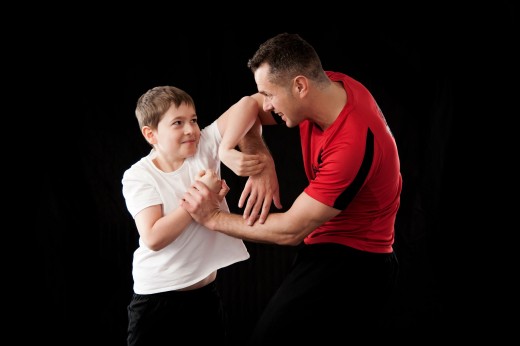
Teach Children How to React to their Gut Instincts
Most of the time, the only thing that rattles a child's trust of someone is when that person says or does something that clearly is not right. However, every now and then, a child might get a bad feeling about a person or situation without any apparent reason. We hope that our children would remove themselves from the presence of these unrealized threats and then tell somebody about their feelings. However, we also don't want our children to live with anxiety by constantly warning them of unforeseen dangers. If an adult has had this experience and reacted accordingly, they might mention it and their reaction to it in conversation with their child or in conversation with somebody else while their child is in the room.
Be involved in the preparation, execution, and duration of your child's outside activities
Make an appointment with school administrators to talk to them about the school. Ask what programs, clubs, and sports they have for children; ask how they discipline unruly children, how they deal with bullys, etc. and ask if you can spend a day observing what your child's day consists of. If you are unhappy with something you see, let the principal know. Check out other schools and go as far as moving your child to a different school if you're not satisfied with the results and if the problems will negatively effect your child on a daily basis.
Community Service
Show your child how to give back to the community. Help him or her assist an elderly neighbor by carrying their groceries. Clean up leaves or trash in their yard or in the park together. Go through their old toys and have them pick out some that they think might make another child happy. Have your child clean it up and package it for its new owner. Bring them to a shelter and let them see the joy they bring to someone else. Let your child know how proud you are that they are getting involved to make things better for other people.
Teach assertiveness
Now comes the scary part. No matter how much love, attention, discipline, and advice you've given to your child, if he or she hooks up with somebody involved in bad things, curiosity may get the best of him or her. It takes strength to resist peer pressure, and we all have our weak moments. This is why it is essential that you pay close attention to the people who attract your child's attention.
Make sure your child knows that they can choose to do the right thing when someone tries to persuade them to do wrong. Let them know that you expect them to come home if a friend participates in any illegal or harmful activities. Make sure that they're not just seeing the criminal with all his or her bling but what they look like without all the bling and the freedom to flaunt it. Let them know that they may have to suffer consequences if they stay.
Make sure they know the law and your rules. For example, vandalism is against the law. If your child is caught in the presence of others who are vandalizing property, they may get a record for vandalizing property also even if they were not involved in the destruction of the property. Make sure your child is aware of these laws. When your child comes home early after being out with friends, try not to interrogate him or her.
Do something special together to reward or comfort them. Go out for ice cream or watch a comedy together. When your child is too young to go out on his or her own and if moving out of your neighborhood is not an option, choose a park in a safer neighborhood to spend time at. Take along a friend from school if you believe his or her family has similar values and expectations as yours.
Be involved. Ask questions. Play the "What would you do if ... ? game." Don't allow your child to run free for hours at a time. Give him or her numerous check in times. Teach your future star to set small goals, reach them, and then set more. Praise good behaviors. Say a prayer, cross your fingers, keep your eyes peeled, and yours ears open!
What If You Make a Mistake as a Parent?
Ensuring our children have the tools they need to defend themselves saves both parents and child from a lifetime of wondering if they could have done something differently to prevent whatever happened. Being a parent has many benefits, but, it also is a lot of hard work. We do our best and sometimes we make mistakes and sometimes we get it perfectly right. The best defense for parents is to become educated on the problems many children face throughout their youth and do enough to head them off without being overbearing.
This content is accurate and true to the best of the author’s knowledge and is not meant to substitute for formal and individualized advice from a qualified professional.


